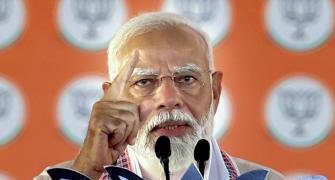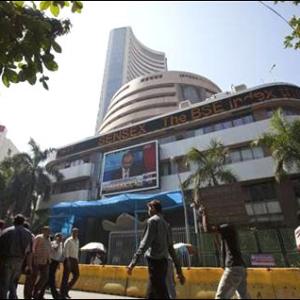The year 2012 has seen nine public issues so far. Of these, three, or one-third, have been withdrawn and one is yet to be listed. Of the remaining, four are trading at a discount and only one is above par. In 2011, 44 initial public offerings (IPOs) and three follow-on public offerings (FPOs) entered the market. And 11, or less than 24 per cent, are trading above issue price. Price is the reason for investors to stay away from IPOs. There is a general sense of apathy among investors after having lost money in IPOs. This explains why the primary markets are in a bad shape. That the secondary markets are not doing well, either, is not helping investors. Markets, over the last 18 months, have not returned money to investors. Assets under management of equity funds have faced redemption pressure during this period.
Price is the reason for investors to stay away from IPOs. There is a general sense of apathy among investors after having lost money in IPOs. This explains why the primary markets are in a bad shape. That the secondary markets are not doing well, either, is not helping investors. Markets, over the last 18 months, have not returned money to investors. Assets under management of equity funds have faced redemption pressure during this period.
The only way to rejuvenate the primary market is to get the IPO price right. So, what is the 'right price'? This is a difficult question and calls for some effort and sacrifice from the promoters and merchant bankers. The sacrifice would be in terms of the company's valuations, since if the amount raised is low, merchant bankers would earn that much lesser.
Every company tapping the capital markets has a peer group. The company and its business model would be comparable with this group. A fair price would be based on the company's earnings per share (EPS) compared to that of the peer group, with a discount (as an unlisted company comes with risks).
The complaint of overpricing of IPOs against merchant bankers and promoters stems from the fact that the fees paid are linked to the company's valuation. Higher valuations fetch higher fees for bankers. So, merchant bankers push through a higher price for the IPO, with the help of media hype. Naturally, post-listing,
Sebi does not allow future projections to be disclosed. Looking at the past numbers and peer group, one gets enough indications of a company's potential. To extrapolate the financials after a year of listing is easy. But one appreciates there are reasons like market conditions, which make predicting the forward price difficult.
It is easier to predict the performance of the company and its earnings. Analysts have been doing this regularly, with fairly decent accuracy. If the performance and earnings of a company are predictable and one has a decent peer group comparison, why can't the right price be arrived at by calculating backwards?
Before Sebi, the Controller of Capital Issues (CCI) was the regulator. Merchant bankers had to explain to CCI why their issue commanded a higher valuation. There was a procedure and formula laid down for calculation of premium. One does not want to revisit the days of CCI. But further deterioration of the primary market is imminent, if the present overpricing regime continues.
In all, 181 listed entities would be floating issues worth Rs 27,000 crore by June 2013. Only then can the promoter shareholding be brought below the threshold limit of 75 per cent. If PSUs are also considered, the number grows by another Rs 12,000-13,000 crore. The combined figure of Rs 40,000 crore excludes fresh offerings from both private and government companies. With such a big pipeline, investors need to be choosy and pick only those with the right price.
The future will demand fair pricing from promoters and merchant bankers. These two also have to ensure they are available for discussion on the company's performance after listing. At the end of the day one should only invest in performing companies.
The writer is founder, Kejriwal Research and Investment Services









